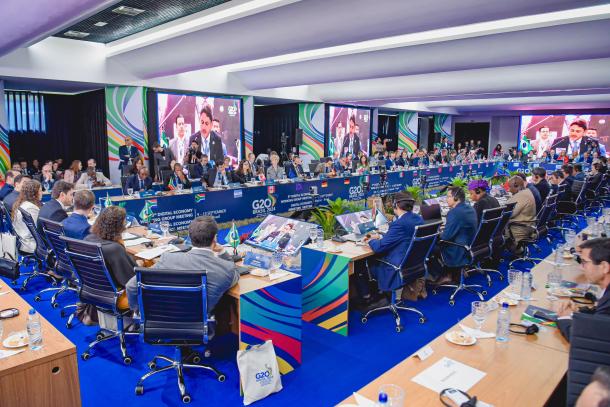Nice Conference Adopts Declaration Emphasizing Importance

After a week of intense discussions, the United Nations Ocean Conference in Nice, France, has reached a significant milestone by adopting a political declaration titled “Our ocean, our future: united for urgent action.” This declaration emphasizes the ocean’s critical role in combating climate change and highlights the urgent need for global action to protect marine ecosystems. The document expresses deep concern over the deteriorating health of the ocean and calls for enhanced efforts to address pressing issues such as climate change, ocean acidification, and marine pollution.
Key Concerns and Calls to Action
The declaration, also referred to as the “Nice Ocean Action Plan,” articulates serious worries regarding the ocean’s capacity to function as a climate regulator. It notes that the ocean’s ecosystems are increasingly weakened, which hampers their ability to support climate adaptation. The document stresses the need for immediate action to meet Sustainable Development Goal 14 and fulfill the 2030 Agenda for Sustainable Development. It calls for a concerted global effort to mitigate the impacts of climate change and ocean acidification, urging nations to implement existing UN agreements and frameworks that can significantly reduce these risks.
Moreover, the declaration highlights the importance of adapting to the unavoidable effects of climate change. It emphasizes the full implementation of the Convention on Biological Diversity and its associated protocols, as well as the Kunming-Montreal Global Biodiversity Framework. The document also commends the leadership of small island developing states in addressing the challenges posed by rising sea levels and expresses concern over the escalating levels of plastic pollution and its detrimental effects on the environment.
Opportunities for Sustainable Development
The conference’s outcome document recognizes the substantial opportunities that sustainable ocean-based economies present, particularly for developing nations and small island states. These economies can play a crucial role in eradicating poverty and hunger while promoting economic growth and social development. The declaration underscores the importance of effective management tools, such as sustainable ocean plans, to achieve these goals. It encourages states to adopt participatory management schemes for small-scale fisheries and highlights the need for regional fisheries management organizations to establish sound practices for sustainable fishing.
Additionally, the declaration acknowledges the critical role of maritime transport and infrastructure in supporting global trade, food security, and energy needs. It calls upon states and regional organizations that have yet to do so to consider signing and ratifying the Agreement on Marine Biological Diversity of Areas Beyond National Jurisdiction, which aims to protect marine biodiversity in international waters.
Education and Awareness Initiatives
The declaration emphasizes the necessity of promoting awareness and education campaigns at various levels to inform the public about the importance of healthy oceans and resilient marine ecosystems. It stresses the need for national ocean accounting and mapping of coastal and marine ecosystems, which are essential for informed policy decisions and conservation planning. The document advocates for ocean action to be grounded in the best available scientific knowledge, including traditional and local knowledge systems, while respecting the rights of Indigenous Peoples and local communities.
Furthermore, the declaration points out that Sustainable Development Goal 14 is among the least funded goals, highlighting the need for significant financial resources to accelerate global ocean action. It calls for the fulfillment of existing commitments under relevant intergovernmental agreements to ensure the health of the oceans.
Global Commitment and Future Directions
Following the adoption of the declaration, representatives from various countries expressed their views. The Russian Federation distanced itself from a specific paragraph regarding the Agreement on Marine Biological Diversity, while Panama’s delegate emphasized the need for full implementation of the agreement. Venezuela’s representative reaffirmed her government’s commitment to the outcome document despite not being a party to the agreement.
Chile and the Republic of Korea announced their joint proposal to host the next United Nations Conference on Oceans in 2028. In closing remarks, Elinor Hammarskjöld, Special Adviser to the Presidents of the Conference, highlighted the importance of inclusive ocean governance. Peter Thomson, the UN Secretary-General’s Special Envoy for the Ocean, stressed the urgency of addressing the ocean’s distress signals, declaring that the time for debate is over. The conference aimed to bolster commitments among nations and environmental groups to support the implementation of Sustainable Development Goal 14, ensuring the sustainable use of oceans and marine resources for future generations.
Observer Voice is the one stop site for National, International news, Sports, Editor’s Choice, Art/culture contents, Quotes and much more. We also cover historical contents. Historical contents includes World History, Indian History, and what happened today. The website also covers Entertainment across the India and World.
Follow Us on Twitter, Instagram, Facebook, & LinkedIn

